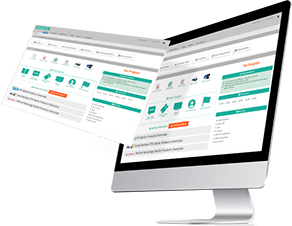There are several options for individuals and families looking to DIY their taxes. The IRS has a Free File program with the Free File Alliance, a coalition of tax preparation software companies. The “IRS Free File” program provides free tax preparation and filing for federal (and sometimes state) tax returns at no cost to qualifying taxpayers.
So, what about the professional tax preparers? What is their role going forward?
EZ Forms
The IRS made EZ file forms for people with simple needs. They have one or two incomes per household and no significant deductions or complicated assets. You take a picture of your W-2, fill in the blanks, e-sign, and the forms are off to the IRS without a fuss. If every family could file an EZ form, electronic filing might pose a more significant threat. Tax preparers who work primarily with small family households might have reason to worry.
However, not all households and businesses are so simple. The more successful they are in business or their chosen field, the more complicated their taxes become. Perhaps the solution is moving away from the straightforward general tax clientele toward more niche markets.
Selecting A Niche
Every industry is different, with its quirks and terminology. Understanding an industry inside and out can help you tailor your approach to your clients. By focusing on a specific type of client or industry, you can gain a competitive advantage over generic accounting firms. You can also charge higher prices for specialized knowledge and get a better return on advertising investments.
There are two types of accounting niches:
- Industry: You focus on a specific sector, learning it inside and out. Example industries include cruise ships, amusement parks, restaurants, investment firms, big box stores, grocery chains, etc.
- Transformation: You choose a specialty within the accounting world and become an expert in that niche, such as financial coaching, forecasting, wealth management, etc.
How To Find Your Skill Set
Why waste your current life experience? Examine your business and see if you already serve a specific niche. If you have many small restaurants in your book of business, why not position yourself as an expert in restaurant taxes?
Another way to find a niche is to mine your past for industry knowledge. Are you an avid golfer? Did you sell merchandise in the golf club store or teach clients on the range as your side gig while going through college? You know the terminology, the territory, the inventory. Turn a passion into a professional niche.
If you don’t think you can find your niche under the industry umbrella, consider transformation. Is there a part of your job that is more intriguing or engaging than others? Perhaps you love the challenge of exit planning. Helping a business owner or stakeholder create a strategy to leave a company is complex. How do you prepare the company to continue without the company founder? How do you know when to sell so the owner gets the maximum value for their investment? Is there a way to minimize taxes resulting from the transition?
Choose A Profitable Niche
Choose an industry likely to grow in the coming years, regardless of economic downturns. Look at the whole company, as the size of the company isn’t necessarily the deciding factor. For example, Disney parks had to shut down during the worst months of the pandemic. If that had been the company’s entire focus, they could have gone under. Yet the company as a whole continued to thrive primarily due to its diversification. While the parks were out of commission, Disney + joined other major online streaming companies to provide digital in-home entertainment. Look for companies that take the long view.
Determine Your Ideal Customer
If you could have anyone, a customer from any niche, who would they be? Where do they relax? Is there a place they congregate online? The more you know about them, the easier it is to create advertisements tailored to the clients you want to attract to your business. What are their pain points?
Determine How You Meet Their Needs
What services do you provide that are outside the average tax preparer’s repertoire? How does your skill set better suit their needs? What kind of customer experience do you offer? You need to understand what sets you apart from the competition and be able to verbalize that when meeting potential clients.
Last Thoughts
Once you know your ideal customer, deliver the best possible customer experience at every appointment and every call according to their particular needs. Part of that experience is using Tax Pro software to streamline your process. The best online tax software will give you access to up-to-date forms and top-of-the-line security while allowing you to meet your clients wherever they are. Accounting tax software should also adapt to your niche, allowing you to customize your client’s profile and experience.






